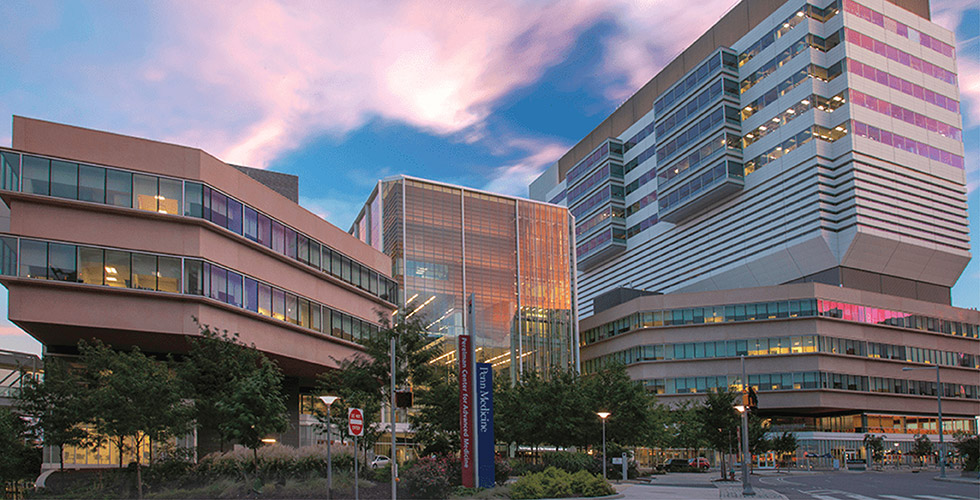
News & Updates
Breaking New Territory: Penn’s Abramson Cancer Center Receives Approval for Rare Cancer Treatment
Thursday, August 2, 2018
On July 31st, the U.S. Food and Drug Administration (FDA) approved a non-surgical cancer treatment for patients with rare pheochromocytoma and paraganglioma neuroendocrine cancers.
The Abramson Cancer Center of the University of Pennsylvania is once again leading the way in rare cancer treatments. This is the second approval they have received over the past year for rare neuroendocrine cancers, following an approval in January 2018 for the drug Lutathera.
As one of a handful of academic medical centers committed to developing treatments for rare types of cancers, the Abramson Cancer Center was the perfect place to the lead the multi-center trials. The innovative study led to the approval and grant to Progenics Pharmaceuticals for AZEDRA.
Pheochromocytoma and paraganglioma are rare tumors that form around the adrenal gland that result in the overproduction of hormones such as epinephrine (adrenaline) and dopamine, causing problems such as high blood pressure. These tumors are typically removed with surgery. Fewer than 2,600 new cases of these cancers are diagnosed each year in the United States. Prior to this cutting-edge development, the five-year survival rate of unresectable cases is estimated to be as low as 12 percent.
“This is a very exciting step in bringing a much-needed treatment to patients with metastatic pheochromocytomas and paragangliomas where limited treatment options exist,” shared Debbie Cohen, MD, Co-Director, Neuroendocrine Tumor Program.

Daniel Alexander Pryma, MD, Associate Professor Of Radiology At The Hospital Of The University Of Pennsylvania and one of the lead investigators of the clinical trial for AZEDRA.
“This is a true breakthrough. Until today, there were no anti-tumor therapies available for patients with these tumors who were not candidates for surgery,” said the trial’s principal investigator Daniel A. Pryma, MD.
Patients affected by pheochromocytoma and paraganglioma will receive a high, specifically-targeted dose of AZEDRA that attacks the tumor.
To read more about this historic FDA approval from Abramson Cancer Center, see here: https://www.pennmedicine.org/news/news-releases/2018/july/azedra-fda-approval


On July 31st, the U.S. Food and Drug Administration (FDA) approved a non-surgical cancer treatment for patients with rare pheochromocytoma and paraganglioma neuroendocrine cancers.
The Abramson Cancer Center of the University of Pennsylvania is once again leading the way in rare cancer treatments. This is the second approval they have received over the past year for rare neuroendocrine cancers, following an approval in January 2018 for the drug Lutathera.
As one of a handful of academic medical centers committed to developing treatments for rare types of cancers, the Abramson Cancer Center was the perfect place to the lead the multi-center trials. The innovative study led to the approval and grant to Progenics Pharmaceuticals for AZEDRA.
Pheochromocytoma and paraganglioma are rare tumors that form around the adrenal gland that result in the overproduction of hormones such as epinephrine (adrenaline) and dopamine, causing problems such as high blood pressure. These tumors are typically removed with surgery. Fewer than 2,600 new cases of these cancers are diagnosed each year in the United States. Prior to this cutting-edge development, the five-year survival rate of unresectable cases is estimated to be as low as 12 percent.
“This is a very exciting step in bringing a much-needed treatment to patients with metastatic pheochromocytomas and paragangliomas where limited treatment options exist,” shared Debbie Cohen, MD, Co-Director, Neuroendocrine Tumor Program.

Daniel Alexander Pryma, MD, Associate Professor Of Radiology At The Hospital Of The University Of Pennsylvania and one of the lead investigators of the clinical trial for AZEDRA.
“This is a true breakthrough. Until today, there were no anti-tumor therapies available for patients with these tumors who were not candidates for surgery,” said the trial’s principal investigator Daniel A. Pryma, MD.
Patients affected by pheochromocytoma and paraganglioma will receive a high, specifically-targeted dose of AZEDRA that attacks the tumor.
To read more about this historic FDA approval from Abramson Cancer Center, see here: https://www.pennmedicine.org/news/news-releases/2018/july/azedra-fda-approval

